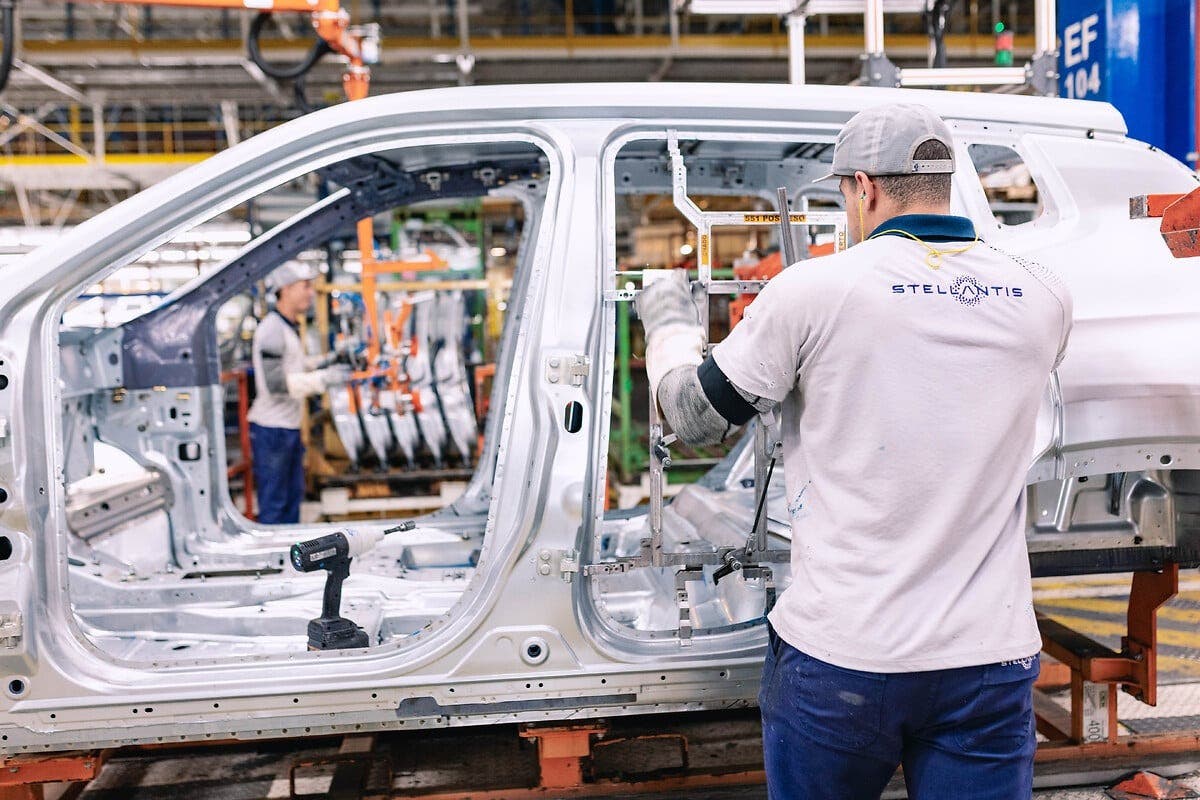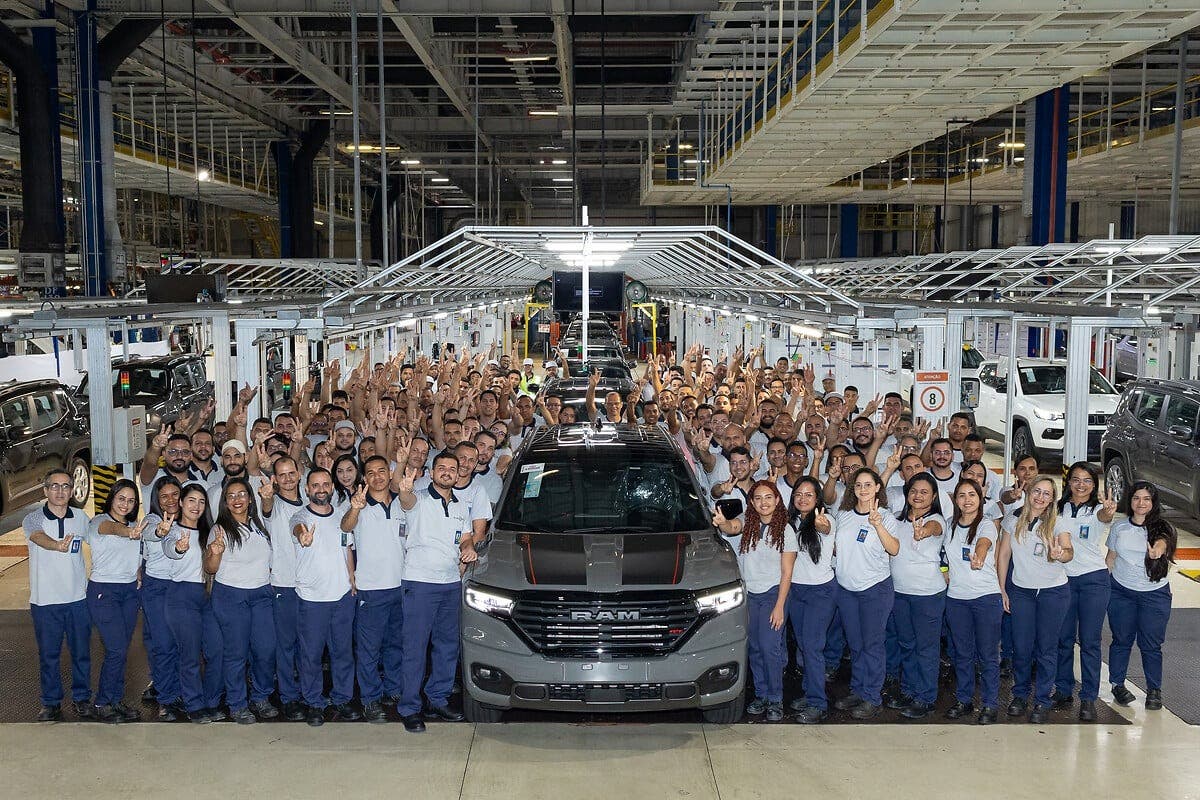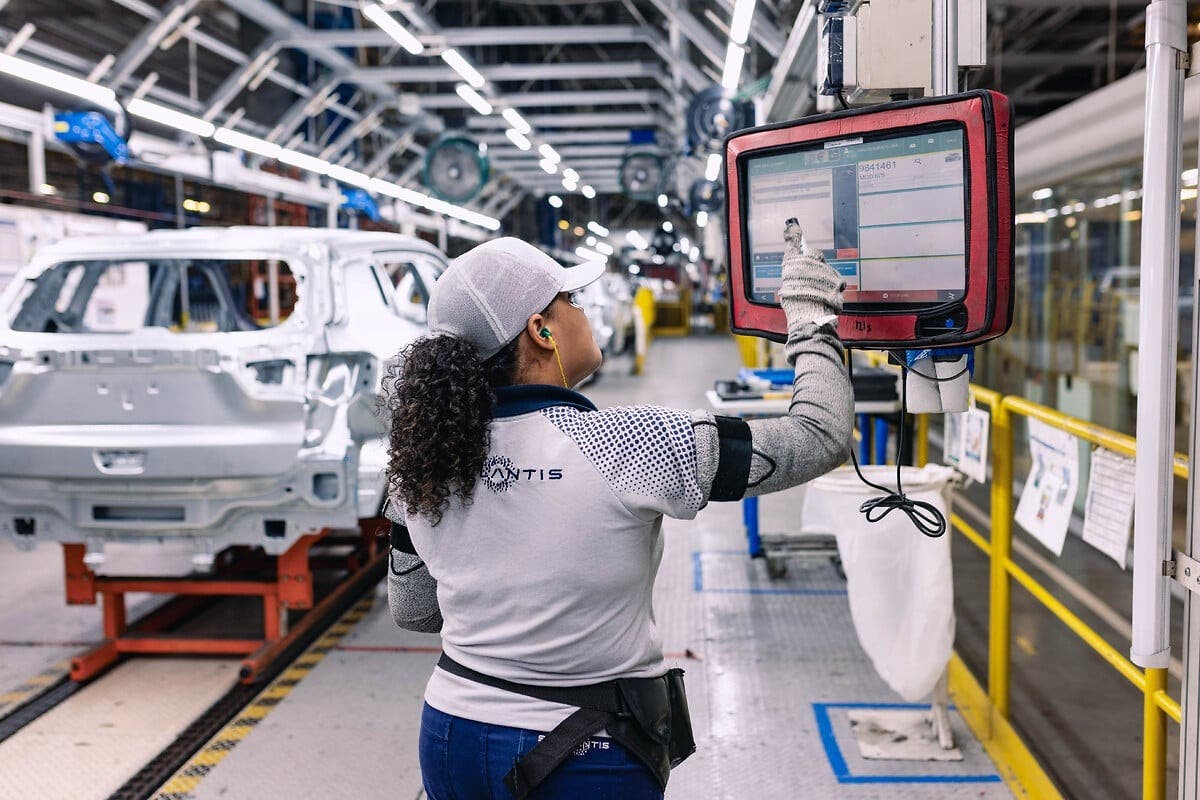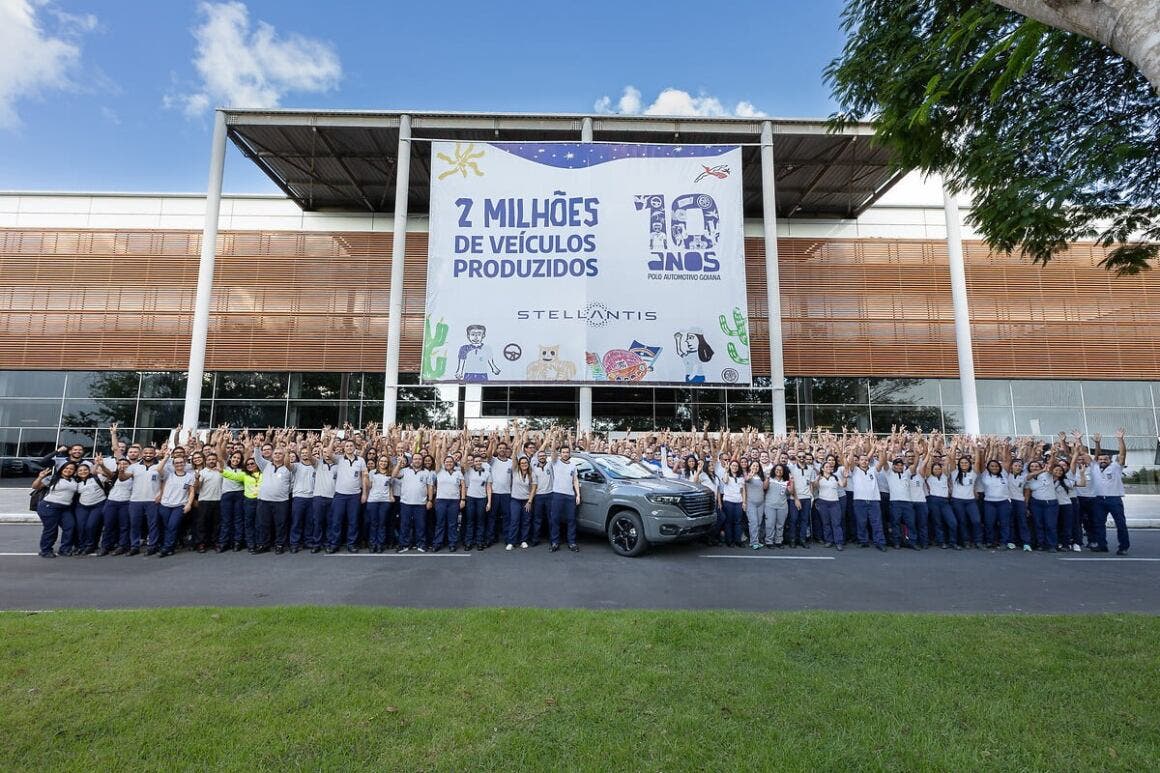The plant located in Pernambuco is one of the most modern and sustainable Stellantis plants in the world and produces five iconic models of the Jeep , Fiat and Ram brands. With more than 48 thousand units sold, Rampage is the “2 millionth vehicle” produced in the Goiana Hub, a benchmark in safety, technology and refinement. Between 2025 and 2030, the unit will receive six new models, including the first vehicle with Bio-Hybrid technology, scheduled for 2026
Stellantis Automotive Hub in Goiana : 2 million vehicles produced
Goiana, August 19, 2025 – The Stellantis Automotive Hub in Goiana has reached the historic milestone of 2 million vehicles produced in Pernambuco. Opened in 2015, the complex has established itself as one of the most modern and sustainable Stellantis plants in the world, playing a strategic role for Brazil and the entire region.
“Reaching the milestone of 2 million vehicles produced in just a decade demonstrates the strength of Stellantis in Brazil and Latin America, as well as the talent and dedication of the thousands of people who are part of this story. The Goiana Hub was born innovative, remains at the forefront of the automotive industry, and continues to grow sustainably with excellence and efficiency,” says Glauber Fullana, Stellantis vice president of manufacturing for South America.

The Polo’s impact goes far beyond vehicle production. Over the past decade, the Pernambuco plant has excelled in process innovation, driving new product launches and creating a broad ecosystem of suppliers and service providers, reaching 38 local suppliers by 2025.
The complex is also a major driver of social and economic development. It generates more than 14,700 direct jobs, as well as professional development initiatives that strengthen the local economy.
“This achievement has only been possible thanks to our highly qualified staff who put their talent and dedication to use every day to achieve excellence. It is thanks to this team that we continue to offer competitive and sustainable vehicles that are appreciated by customers both in Brazil and abroad,” stresses Francis Ribeiro Jorge, Director of the Goiana hub.
Rampage scores 2 million
The 2 millionth vehicle was the Rampage, the first Ram pickup truck designed, developed and produced outside North America. The fifth model to enter production in Goiana, the Rampage symbolizes the strength of Brazilian engineering and manufacturing: its design involved more than 800 engineers and technicians, with 1.2 million development hours.

Since its launch in 2023, the Rampage has quickly conquered the Brazilian market. As of July this year, the model has reached 48,000 units sold and has already accumulated 25 awards from the trade press, establishing itself as a benchmark for refinement, safety and technological content in the segment.
Currently, the Goiana Automotive Hub produces five highly successful models of the Fiat, Jeep and Ram brands: the Jeep Renegade, Compass and Commander, as well as the Fiat Toro and the Rampage itself.
International presence
In addition to serving the domestic market, the Goiana Automotive Hub plays a strategic role for Stellantis’ exports. Since its opening, more than 250,000 units have been shipped abroad. In 2024 and 2025, the facility set historic records in exports to several Latin American countries, strengthening the competitiveness of the Brazilian automotive industry on the global stage.

Promising future
With an installed production capacity of 280,000 vehicles per year, the Goiana Automotive Hub has established itself as a global benchmark in the automotive industry, combining engineering excellence, technological innovation and sustainability. Prepared for the next mobility challenges, the plant will continue to launch increasingly modern vehicles, including hybrid technologies.
This future has already begun to materialize. Stellantis recently announced the production of six new models at the plant between 2025 and 2030, which will also receive R$13 billion in investment during this period. Among the new models is the first vehicle equipped with bio-hybrid technology, which will be launched in 2026.
